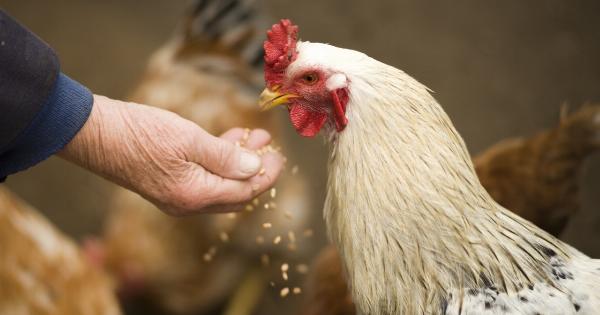When it comes to raising chickens, nutrition is key. The quality of their diet affects not only their overall health but also the nutritional value of the eggs they produce.
While many commercial chicken feeds contain a mix of grains and other ingredients, feeding chickens a vegetable-based diet can provide numerous benefits for both the chickens and the consumers who consume their eggs.
What Constitutes a Vegetable-Based Diet for Chickens?
A vegetable-based diet for chickens typically includes a variety of leafy greens, vegetables, and fruits. These can range from scraps from the kitchen to purpose-grown crops.
Some popular choices include kale, chard, spinach, carrots, beets, lettuce, squash, cucumbers, tomatoes, and berries. In addition to these fresh foods, chickens may also be given access to pasture or allowed to forage for insects and plants.
Benefits of a Vegetable-Based Diet for Chickens
Feeding chickens a vegetable-based diet offers numerous benefits.
- Better egg quality: Studies have shown that chickens fed a diet high in greens and vegetables produce eggs with more nutrients, including vitamins E, A, and D, as well as omega-3 fatty acids. These nutrients are essential for human health and can improve cardiovascular, neurological, and immune function.
- Lower cholesterol: Because vegetable-based diets are lower in saturated fats than grain-based diets, chicken eggs from hens fed a vegetable-based diet are also lower in cholesterol. This makes them an excellent choice for individuals who are watching their cholesterol levels.
- Healthier chickens: A vegetable-based diet also helps to keep chickens healthy. Because vegetables are high in antioxidants and other nutrients, they can boost the immune system of chickens and reduce the risk of disease. Additionally, the varied diet can improve gut health and lead to a healthier digestive system for the chickens.
- Reduced food waste: A vegetable-based diet can also help to reduce food waste. By feeding chickens scraps from the kitchen or excess produce from the garden, less food is wasted and more is put to good use.
How to Incorporate a Vegetable-Based Diet into Chicken Feeding
There are several ways to incorporate a vegetable-based diet into chicken feeding, including:.
- Free-range or pasture access: One of the simplest ways to provide chickens with a vegetable-based diet is to give them access to pasture or free-range in a garden or farm. This allows the chickens to forage for a variety of greens and insects, which can make up a significant portion of their diet.
- Compost scraps: Another option is to compost kitchen scraps and then feed the resulting compost to the chickens. This not only provides the chickens with a nutritious diet but also reduces food waste in the household.
- Grow specific crops: Chickens can also be fed specific crops, such as kale or lettuce, that are grown specifically for them. This can be done in an enclosed space, such as a greenhouse or container garden, or in a larger open space.
Considerations When Feeding Chickens a Vegetable-Based Diet
When feeding chickens a vegetable-based diet, there are a few factors to keep in mind:.
- Balanced diet: It is essential to provide chickens with a balanced diet that includes all the necessary nutrients they need to stay healthy and produce eggs. While vegetables can provide many of these nutrients, they may not provide everything, so it is important to supplement with other foods as needed.
- Safe food handling: It is also important to handle and store food properly, particularly when using scraps from the kitchen or garden, to prevent contamination of the food by harmful bacteria.
- Seasonal availability: Finally, it is important to consider the seasonal availability of vegetables and other foods. Chickens may need more variety in their diet during the winter months when fresh produce is scarce.
Conclusion
Feeding chickens a vegetable-based diet can offer numerous benefits for both the chickens and the consumers who enjoy their eggs.
By providing chickens with access to a variety of greens and vegetables, their diet can be enriched with key nutrients that are essential for human health. Incorporating a vegetable-based diet into chicken feeding can also reduce food waste and promote a healthier environment for both the chickens and the planet.































